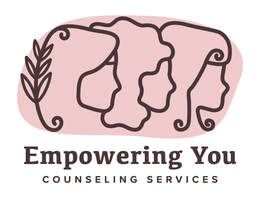|
While in school, I took a lot of Women’s Studies classes - and yes, I love psychology and counseling, but these classes were my favorite. As I learned about all these different aspects of womanhood, gender, sexuality, and feminism, I also learned so much about myself. I was viewing myself within these contexts - and learning about the other people in my classes within these contexts. One topic that arised in many of those classes was how we form and shape how we view ourselves from the images we see. It seems like it’s almost impossible not to! Every magazine tells us what special diet will help us lose 5 pounds fast, every self-help book assumes we want “10-minute arm workouts,” and every show shames the fat person and praises thinness at any cost. And then, enter social media - where these messages are no longer passively on the shelves of a checkout lane. Still, these messages are being spoken directly to you, and the algorithm for these apps ensures that that is the only message you see. That is unless you specifically know how to counteract the way the algorithm works. I recently saw this video a woman posted on Instagram, in which she talked about how she used the algorithm to work in her favor. She would ignore the videos/posts of women who didn’t look like her body type that were posting about dieting/exercise. She would click the “not interested” button on those posts and begin following/interacting with women and other people who were her body type. The woman in this video talks about how seeing similar bodies, and not bodies she is supposed to “want,” has helped her and how she feels about her body. This is one-way social media can be somewhat of a benefit - we can feel less alone and see people who look like us and are dealing with similar things as us. But not everybody knows how to do that - not every person understands different ways to navigate these apps. And why should we? These places are meant for entertainment - not for “thinspiration,” or “fatphobia,” or a new diet/workout trend every other day. It’s almost like these things infiltrate, and we watch one video 2 seconds too long, and suddenly everything that’s recommended to us is about that one thing. How frustrating! Body shaming seems to be all around social media. All these videos we watch try to tell us our body is not perfect as it is - just go on the treadmill or try pilates or be in a calorie deficit to change your body, instead of teaching us ways to accept our body as it is and hopefully learn some self-love. So, how can we learn that acceptance? How can we learn to feel better and more compassionate about our bodies when we deal with these messages? For me and many people, this is an ongoing journey. Some days are easier than others - some aspects of our body are easier to accept than others. And there’s nothing wrong with that. If you’ve felt a certain way about your body for years - or even most of your life - showing yourself the gratitude and self-compassion you deserve will take some practice! No one is good at something new the first or even the third time they try it. But you are worth it. You are worth the practice and the time it takes to learn how to live in your body comfortably. Ashley Klasing LPC-Associate |
Author'sApril Schoonover, Archives
May 2024
Categories |
|
2008 NW Military Suite 3, San Antonio, TX 78213
|
(210) 942-8911
|
Hours:
Monday-Friday 10 am to 6 pm
Monday-Friday 10 am to 6 pm
Website by TherapyPrime

 RSS Feed
RSS Feed